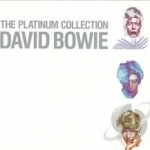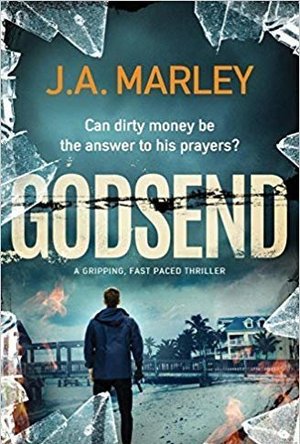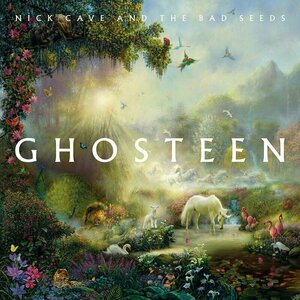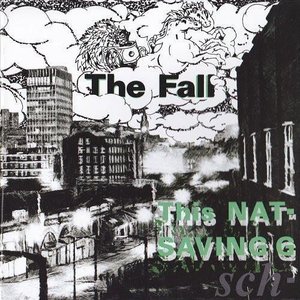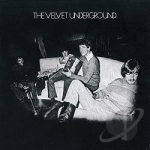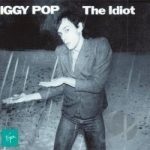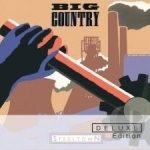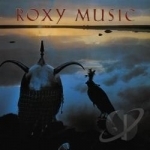Search
Search results
Woody Woodmansey recommended track Life on Mars by David Bowie in Platinum Collection by David Bowie in Music (curated)
Sassy Brit (97 KP) rated Godsend in Books
Jun 6, 2019
Godsend, by J.A. Marley is the second Danny Felix novel, and although I have not read the first, Standstill, I read this fast and furiously, as if this was indeed a standalone novel.
Vincent Cardell has over zealous political and religious ambitions, and decides to help out the Mexican cartel with their money laundering, and skims a little bit off the top for himself, I mean the church, whilst he’s at it.
His wife, June is fed up with his ways, and suspects the cartel know what he’s done, and it won’t be long before they come for him, and perhaps her too. So what does she do? Enlists Danny, to rob Vincent’s money and give it all to her. What could possibly go wrong with a deal proposed by a Preacher’s wife?
Right from the first few pages I knew this cheeky chappy was going to be a lot of fun to read. Danny is a flawed, and somewhat vulnerable character, coping with past events that have led to panic attacks and flashbacks, yet he’s still a criminal at heart, despite being ‘retired’ and living in Florida Keys. Nothing, it seems, can keep this man down. He’s a genuine, loveable rogue. As is his mate, Ciaran.
In fact, all of the characters were really well rounded; I loved to hate Harkeness, and I kind of liked June Cardell (also a Brit), even though I probably shouldn’t have. Hell, even Slow Tina, a seventy year old stripper, had a great part to play! (Her character made me giggle).
Because Godsend was based in America, the whole story was written very much in an American style read (lots of Americanisms), with an evangelical couple, preacher Vincent and his conniving wife, June, being a central part of this theme. This was balanced out nicely by the fact that Danny himself was from the UK, with plenty of British-isms up his sleeve! Lots of ‘feckin’s’ and ‘fecks’ too! Aha!
As with this style of gritty, pulp action, there is a lot of name dropping in this book, musicians, actors, and the films, books and songs they produced. They even went to a Geekfest, which I have to mention, as I went to one last Sunday! So yeah, you could say this was my kind of read in more ways than one. Then, just when I thought it was all over the epilogue says otherwise… Nice one!
Overall this is a terrific hard-boiled crime thriller, with some great one liners and equally great, misbehaving characters. If you want to know what happens when you mess with the cartel, read this book!
Vincent Cardell has over zealous political and religious ambitions, and decides to help out the Mexican cartel with their money laundering, and skims a little bit off the top for himself, I mean the church, whilst he’s at it.
His wife, June is fed up with his ways, and suspects the cartel know what he’s done, and it won’t be long before they come for him, and perhaps her too. So what does she do? Enlists Danny, to rob Vincent’s money and give it all to her. What could possibly go wrong with a deal proposed by a Preacher’s wife?
Right from the first few pages I knew this cheeky chappy was going to be a lot of fun to read. Danny is a flawed, and somewhat vulnerable character, coping with past events that have led to panic attacks and flashbacks, yet he’s still a criminal at heart, despite being ‘retired’ and living in Florida Keys. Nothing, it seems, can keep this man down. He’s a genuine, loveable rogue. As is his mate, Ciaran.
In fact, all of the characters were really well rounded; I loved to hate Harkeness, and I kind of liked June Cardell (also a Brit), even though I probably shouldn’t have. Hell, even Slow Tina, a seventy year old stripper, had a great part to play! (Her character made me giggle).
Because Godsend was based in America, the whole story was written very much in an American style read (lots of Americanisms), with an evangelical couple, preacher Vincent and his conniving wife, June, being a central part of this theme. This was balanced out nicely by the fact that Danny himself was from the UK, with plenty of British-isms up his sleeve! Lots of ‘feckin’s’ and ‘fecks’ too! Aha!
As with this style of gritty, pulp action, there is a lot of name dropping in this book, musicians, actors, and the films, books and songs they produced. They even went to a Geekfest, which I have to mention, as I went to one last Sunday! So yeah, you could say this was my kind of read in more ways than one. Then, just when I thought it was all over the epilogue says otherwise… Nice one!
Overall this is a terrific hard-boiled crime thriller, with some great one liners and equally great, misbehaving characters. If you want to know what happens when you mess with the cartel, read this book!
Nicole Hadley (380 KP) rated The Sound of Freedom in Books
Jun 18, 2018
The Sound of Freedom by Kathy Kacer is a middle-grade novel about a Jewish family in Krakow, Poland in 1936. Life has become increasingly dangerous, as the violence and persecution of Jews increase. Anna is afraid if they don’t escape soon, something really bad will happen. Her father is a talented clarinetist in the Krakow Philharmonic Orchestra. They hear that Bronislaw Huberman is auditioning Jewish musicians from all over Europe for a new orchestra in Palestine. If her father auditions and is accepted, she and her grandmother can leave Poland with her father for a new life in Palestine.
Stories of Jews in the Holocaust have fascinated me since I was a kid. The first book about the Holocaust I read was Number the Stars by Lois Lowry, then later A Diary of Anne Frank, and many more. My interest in the Holocaust is why I requested a copy of this book from NetGalley.
The Sound of Freedom is an introduction to the beginning of the Holocaust for middle-grade students. The story is told through the eyes of Anna, focusing on the growing anti-Semitism she sees going on around her and that eventually happens to her. It is set in 1936, before Germany’s invasion of Poland and as Hitler is rising in power, so the real horrors of the Holocaust have not yet started.
While the story of Anna’s family is fiction, Bronislaw Huberman really was a world-renown violinist and did create the Palestine Philharmonic Orchestra to save over a thousand Jews by recruiting them for the newly formed orchestra. Anna’s story is representative of the lives saved by Bronislaw Huberman.
While the story is for middle-grade student, it tells the harsh reality of the what was happening. Readers will be faced with the problems and issues of the era. Some of the families leave the orchestra to go back to their homeland, and Anna is concerned for their safety and the reader is left to wonder what happened to them. The story also mentions the tensions between the Arabs and the Jewish peoples in Palestine. Anna's family may have escaped Poland, but they are faced with issues in Palestine.
I give the story 4.5 stars. I recommend it to anyone with an interest in the time-period. The Sound of Freedom would make an excellent addition to a Holocaust study.
I received an Advanced Readers Copy from Annick Press via NetGalley in exchange for an honest review.
Stories of Jews in the Holocaust have fascinated me since I was a kid. The first book about the Holocaust I read was Number the Stars by Lois Lowry, then later A Diary of Anne Frank, and many more. My interest in the Holocaust is why I requested a copy of this book from NetGalley.
The Sound of Freedom is an introduction to the beginning of the Holocaust for middle-grade students. The story is told through the eyes of Anna, focusing on the growing anti-Semitism she sees going on around her and that eventually happens to her. It is set in 1936, before Germany’s invasion of Poland and as Hitler is rising in power, so the real horrors of the Holocaust have not yet started.
While the story of Anna’s family is fiction, Bronislaw Huberman really was a world-renown violinist and did create the Palestine Philharmonic Orchestra to save over a thousand Jews by recruiting them for the newly formed orchestra. Anna’s story is representative of the lives saved by Bronislaw Huberman.
While the story is for middle-grade student, it tells the harsh reality of the what was happening. Readers will be faced with the problems and issues of the era. Some of the families leave the orchestra to go back to their homeland, and Anna is concerned for their safety and the reader is left to wonder what happened to them. The story also mentions the tensions between the Arabs and the Jewish peoples in Palestine. Anna's family may have escaped Poland, but they are faced with issues in Palestine.
I give the story 4.5 stars. I recommend it to anyone with an interest in the time-period. The Sound of Freedom would make an excellent addition to a Holocaust study.
I received an Advanced Readers Copy from Annick Press via NetGalley in exchange for an honest review.
Kirk Bage (1775 KP) rated Ghosteen by Nick Cave & The Bad Seeds in Music
Mar 3, 2020 (Updated Aug 6, 2020)
My intention was to listen to this twice through and then tell you what I thought about it. In the past, I have always admired Nick Cave more in theory than in practice. Finding his heavier touches a little too “noisy”. Typified by the 2004 release Abbatoir Blues / The Lyre of Orpheus, where I listened to the latter, gentler side over and over, and largely left the more raucous tracks on the former alone.
Because of this personal preference, I have ended up virtually listening to Ghosteen on loop for a full week, as it leans very definitely towards the softer side of his soul – at times almost ambient dreamscape, washing over you like tired thoughts just before sleep. And, often, that is what it became for me: a night album to drift away to.
It is an album about grief, regret, spirituality and humanism. There is a misconception that it is wholly inspired by the death of Cave’s son Arthur, but, in his own words, it was more the death of band member Conway Savage that allowed the themes and lyrics to become the work.
As always, it is Cave’s poetry that emerges as the backbone and soul of every song. The melodies wash over you, at times indistinguishable as separate tracks, and you begin to feel invited into a man’s heart and mind as he explores mortality, shifting between anger, acceptance, fear and hope, in a segue of sound that feels ultimately like a mood painting, defying criticism.
At times listening feels like an intrusion; like these thoughts are too personal to eavesdrop on. At other times, you feel taken by the hand and invited to look at something beautiful. If you allow yourself to be taken on this journey willingly, your empathy will be coaxed and encouraged, and it will be safe. Sadness is only one part of grief, seems to be the message, and it’s a message I relate to and adore.
Labels such as “art-rock” and “post-punk” get thrown at Cave, in futile efforts to pin him down. I think it best not to try. For me, he is truly one of a handful of musicians alive who can be called an artist without hyperbole. His work has texture and emotion that goes beyond how we normally judge music. Making it ok to not “like” a song, as long as it tells part of the story.
For sure his best work for quite a while. At times, so perfect it seems churlish to judge it at all.
Because of this personal preference, I have ended up virtually listening to Ghosteen on loop for a full week, as it leans very definitely towards the softer side of his soul – at times almost ambient dreamscape, washing over you like tired thoughts just before sleep. And, often, that is what it became for me: a night album to drift away to.
It is an album about grief, regret, spirituality and humanism. There is a misconception that it is wholly inspired by the death of Cave’s son Arthur, but, in his own words, it was more the death of band member Conway Savage that allowed the themes and lyrics to become the work.
As always, it is Cave’s poetry that emerges as the backbone and soul of every song. The melodies wash over you, at times indistinguishable as separate tracks, and you begin to feel invited into a man’s heart and mind as he explores mortality, shifting between anger, acceptance, fear and hope, in a segue of sound that feels ultimately like a mood painting, defying criticism.
At times listening feels like an intrusion; like these thoughts are too personal to eavesdrop on. At other times, you feel taken by the hand and invited to look at something beautiful. If you allow yourself to be taken on this journey willingly, your empathy will be coaxed and encouraged, and it will be safe. Sadness is only one part of grief, seems to be the message, and it’s a message I relate to and adore.
Labels such as “art-rock” and “post-punk” get thrown at Cave, in futile efforts to pin him down. I think it best not to try. For me, he is truly one of a handful of musicians alive who can be called an artist without hyperbole. His work has texture and emotion that goes beyond how we normally judge music. Making it ok to not “like” a song, as long as it tells part of the story.
For sure his best work for quite a while. At times, so perfect it seems churlish to judge it at all.
Brett Anderson recommended This Nation's Saving Grace by The Fall in Music (curated)
Brian Eno recommended Velvet Underground by The Velvet Underground in Music (curated)
Faris Badwan recommended track Mass Production by Iggy Pop in Idiot by Iggy Pop in Music (curated)
Amy Norman (1048 KP) rated LINE WEBTOON - Daily Comics in Apps
May 17, 2020
'Webtoon' is a fantastic free app!
Whether or not you love manga, or comic books, this is a good step towards experiencing these formats in the digital world. It may even be the encouraging bridge towards them, especially if you have thought about dabbling in that world but never taken the leap.
The app itself is easy to use, and there are no adverts thrust upon you, or anything that gets in the way of enjoying the series you are reading.
A great deal of the series are produced weekly, you can 'subscribe' to those ones you enjoy, so that you will receive notifications of when they have been updated.
As with most apps there is also the opportunity to purchase 'coins'. Most series are about 3 weeks ahead of the general release, and you can spend those 'coins' on unlocking episodes ahead of the majority of readers (or if you simply can't wait until the next week!)
There are also occasionally 'challenges' so you can earn coins too.
The different series range from having audiences of a couple of hundred people to the millions, but each series is filled with such care and love, you can't help but fall in love with them all, and want to help the 'smaller' artists, by growing their fanbase!
The app also has different projects that give you tasters of potential series, which you can vote on, and then they will help the artist out and make their series a permanent feature.
There is a great community feel in the comments sections, and it is a perfect way for the artists/authors etc to gain feedback.
The artists/authors will occasionally incorporate this into their work, or even steer a story down a path that they hadn't considered before, or will drop an episode about a fan favourite character.
It all feels very personal, and I always thoroughly enjoy reading the episodes, then diving into the comments sections, to share joy with other enthusiastic fans (spoiler free ofc!)
All of the artwork is stunning, and there are so many styles to suit everyones tastes. Some artists will also work with musicians and incorporate music into the episode, this always adds to the magic, whether it is a few sound effects, or a full track.
The ONLY pitfall I would say is that occasionally it can feel like the episodes are a bit short but I imagine it is hard work keeping up with the schedules sometimes!!
However, if you fall in love with a series, it won't matter how long an episode is, it will always leave you wanting more and excited for the next episode ☺
Whether or not you love manga, or comic books, this is a good step towards experiencing these formats in the digital world. It may even be the encouraging bridge towards them, especially if you have thought about dabbling in that world but never taken the leap.
The app itself is easy to use, and there are no adverts thrust upon you, or anything that gets in the way of enjoying the series you are reading.
A great deal of the series are produced weekly, you can 'subscribe' to those ones you enjoy, so that you will receive notifications of when they have been updated.
As with most apps there is also the opportunity to purchase 'coins'. Most series are about 3 weeks ahead of the general release, and you can spend those 'coins' on unlocking episodes ahead of the majority of readers (or if you simply can't wait until the next week!)
There are also occasionally 'challenges' so you can earn coins too.
The different series range from having audiences of a couple of hundred people to the millions, but each series is filled with such care and love, you can't help but fall in love with them all, and want to help the 'smaller' artists, by growing their fanbase!
The app also has different projects that give you tasters of potential series, which you can vote on, and then they will help the artist out and make their series a permanent feature.
There is a great community feel in the comments sections, and it is a perfect way for the artists/authors etc to gain feedback.
The artists/authors will occasionally incorporate this into their work, or even steer a story down a path that they hadn't considered before, or will drop an episode about a fan favourite character.
It all feels very personal, and I always thoroughly enjoy reading the episodes, then diving into the comments sections, to share joy with other enthusiastic fans (spoiler free ofc!)
All of the artwork is stunning, and there are so many styles to suit everyones tastes. Some artists will also work with musicians and incorporate music into the episode, this always adds to the magic, whether it is a few sound effects, or a full track.
The ONLY pitfall I would say is that occasionally it can feel like the episodes are a bit short but I imagine it is hard work keeping up with the schedules sometimes!!
However, if you fall in love with a series, it won't matter how long an episode is, it will always leave you wanting more and excited for the next episode ☺
